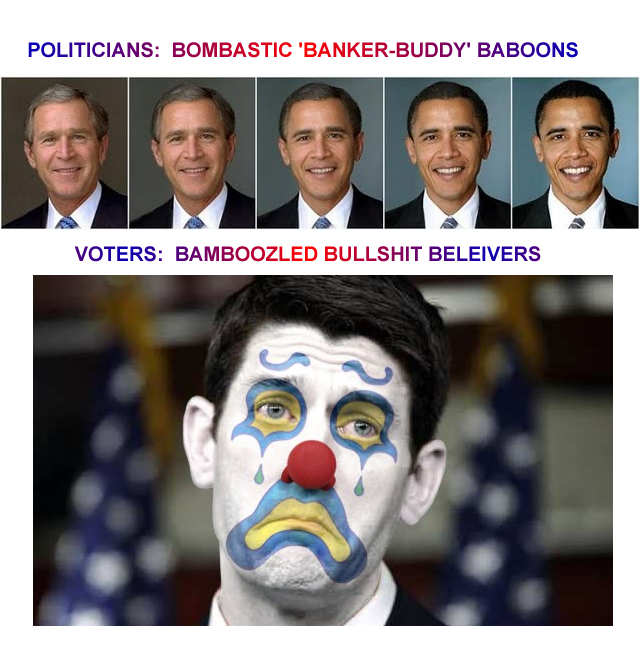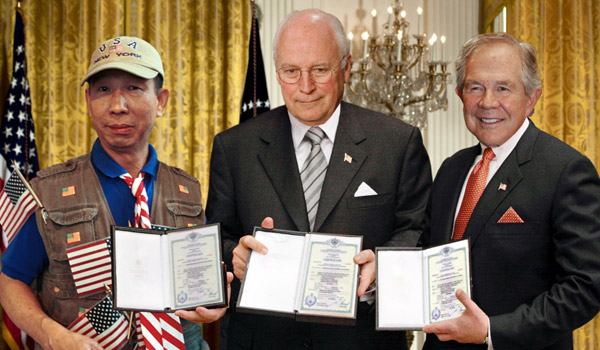Republished by Blog Post Promoter
Tag Archives: thieves
IMPERIAL PARASITES
Congress Honors 9/11 First Capitalizers
Republished by Blog Post Promoter
WASHINGTON—In an act that many are calling long overdue, Congress passed legislation this week to honor those Americans who were first on the scene to profit from the tragedy of Sept. 11, 2001.
The so-called 9/11 First Capitalizers Act, which passed by a wide margin in both the House and Senate, is the first measure to recognize the utter lack of sacrifice on the part of those men and women who did not hesitate to put their own personal agendas above all else when it mattered most.
“It is high time we paid tribute to those who sensed the direness of the moment and immediately sprang into action on that terrible day, exploiting it for personal gain,” Sen. Lindsey Graham (R-SC) said Tuesday. “These were the thoughtless men and women who selfishly showed us that in desperate times, the most callous among us will always be there to step forward and do whatever it takes to get a piece of the action.”
“They sacrificed their dignity and sense of basic morality so that others might one day give to them,” Graham continued.
Enlarge Image Developers currently constructing retail space on the site of Ground Zero are among those being honored.
Developers currently constructing retail space on the site of Ground Zero are among those being honored.
The bill not only honors those who rushed to Ground Zero immediately to sell merchandise, participate in photo ops, or advance an ideological agenda, but also those who profited from afar by producing jingoistic songs and TV specials, or mentioning 9/11 in stump speeches as a way of scaring people into voting for them.
Among those Americans recognized were “United We Stand” T-shirt manufacturer Gary Tabano, country artists Toby Keith and Lee Greenwood, Halliburton CEO David Lesar, filmmaker Oliver Stone, former president George W. Bush, and 89 members of Congress itself.
After apologizing for the “needless delay” in honoring the shameless bottom-feeders, lawmakers confirmed the measure would establish a special fund for the 9/11 First Capitalizers, helping those individuals collect whatever funds and resources they somehow didn’t manage to rake in hand over fist in the hours, days, and months following our nation’s darkest hour.
“From Blackwater founder Erik Prince to the people who marketed those ‘Heroes of the World Trade Center’ trading cards, these Americans did things most of us can scarcely even imagine,” Sen. Bob Casey (D-PA) said. “And after all they do, they still somehow find time to sleep like babies every night.”
Also singled out for recognition were Ashland, OR resident Linda Banks, 48, who continues to trot out her maudlin, self-serving story of where she was on 9/11 every single time she sees an opportunity, and Canton, OH resident Geoff Markum, 29, who, soon after the terrorist attack, began replacing his favorite punch line, “That was worse than the Holocaust!” with “That was worse than 9/11!”
When reached for comment, a number of First Capitalizers were more than willing to step forward and share their heart-numbing tales of exploitation and greed.
“I’m no hero. I just did what any opportunist would do,” said World Trade Center leaseholder Larry Silverstein, who tried to collect double on his $3.5 billion insurance policy by arguing that the towers had been hit by two separate planes. “After all, I couldn’t just stand idly by and do nothing to benefit myself while the entire country suffered.”
Congress also announced that it would be dedicating a special plaque on the National Mall containing the names of all 12,554,310 Americans who eventually capitalized on the tragedy with their bullshit advertising, partisan rhetoric, forgettable novels, defense contracts, and all-around cheap, manipulative sentimentalism.
In related news, the White House announced this week that work continues apace on the multitrillion-dollar monuments to the exploitation of 9/11 currently underway in Afghanistan and Iraq.![]()
COMMUNAL STUPIDITY
Republished by Blog Post Promoter
” There is no nonsense so gross that society will not, at some time, make a doctrine of it and defend it with every weapon of communal stupidity.”
— Robertson Davies
DERIVATIVES: CRIMINAL MINDS AT “WORK”
Republished by Blog Post Promoter
A Derivative is a financial instrument with a value dependent upon underlying variables. The term can refer to a contract, or its value, derived from the underlying assets. The most common derivatives arefutures, options, and swaps but may also include other tradeable assets such as a stock or commodity or non-tradeable items such as the temperature (in the case of weather derivatives), the unemployment rate, or any kind of (economic) index. A derivative is essentially a contract whose payoff depends on the behavior of a benchmark.
One of the oldest derivatives is rice futures, which have been traded on the Dojima Rice Exchange since the eighteenth century.
Derivatives are broadly categorized by the relationship between the underlying asset and the derivative (e.g., forward, option, swap); the type of underlying asset (e.g., equity derivatives, foreign exchange derivatives, interest rate derivatives, commodity derivatives, or credit derivatives); the market in which they trade (e.g., exchange-traded or over-the-counter); and their pay-off profile.
Derivatives can be used for speculating purposes (“bets”) or to hedge (“insurance”). For example, a speculator may sell deep in-the-money naked calls on a stock, expecting the stock price to plummet, but exposing himself to potentially unlimited losses. Very commonly, companies buy currency forwards in order to limit losses due to fluctuations in the exchange rate of two currencies.
Derivatives are used by investors to:
- provide leverage (or gearing), such that a small movement in the underlying value can cause a large difference in the value of the derivative;
- speculate and make a profit if the value of the underlying asset moves the way they expect (e.g., moves in a given direction, stays in or out of a specified range, reaches a certain level);
- hedge or mitigate risk in the underlying, by entering into a derivative contract whose value moves in the opposite direction to their underlying position and cancels part or all of it out;
- obtain exposure to the underlying where it is not possible to trade in the underlying (e.g., weather derivatives);
- create option ability where the value of the derivative is linked to a specific condition or event (e.g. the underlying reaching a specific price level).







